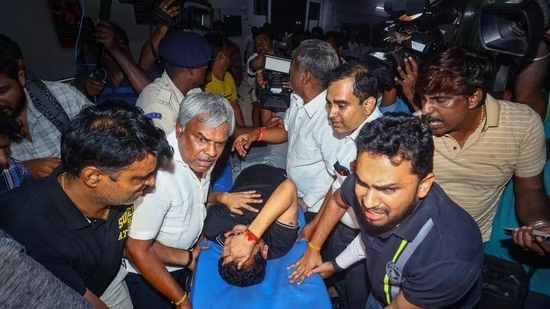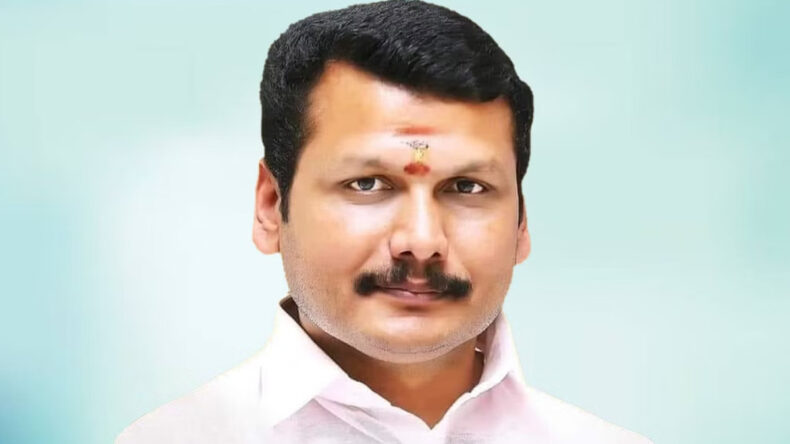Chief Minister vows to challenge move in the Supreme Court as it was carried out without consultation
DMK minister Senthil Balaji was dismissed from the Council of Ministers with immediate effect by Tamil Nadu governor R.N. Ravi on Thursday, June 29, exacerbating the conflict between the governor and the DMK-led government in the state.
Raj Bhavan’s official release stated that Balaji is facing serious criminal proceedings in cases related to corruption and money laundering and that he has abused his power as a minister to hinder the processes of law and justice. Should he continue in the Council of Ministers, he could adversely impact the due processes of law, which may eventually lead to the breakdown of constitutional machinery in the state, it further said.
Surprisingly, the order came even as chief minister M.K. Stalin retained Balaji as a minister without portfolio on June 17.
In response to the move, the CM noted that the governor has no authority to dismiss a minister from the Cabinet. He also affirmed that the government would ‘face it legally’ and challenge this decision in the Supreme Court.
Balaji has been in judicial custody since June 14, when he was arrested by the Enforcement Directorate in an alleged money laundering case.
The role of CM and the Council of Ministers
The dismissal of a minister from the Council of Ministers by a governor without the counsel of a chief minister marks an anomaly in India’s political history.

Image Source: Hindustan Times
Former Secretary General of the Lok Sabha and eminent constitutional expert P.D.T. Achary commented on the incident saying that the governor can appoint a state minister only on the recommendation of the chief minister, and simultaneously, a minister can be removed from his post only on the advice of the chief minister.
Political analyst Durai Karuna observed that the exclusive power of inducting ministers or dropping them from the Cabinet is vested entirely with the chief minister and there is no role of governor here.
Senior advocate Mukul Rohatgi also commented that in this case, the governor has clearly exceeded his jurisdiction by unilaterally dismissing a minister from the Council of Ministers without any deliberation with the chief minister.
The Supreme Court has historically, from S R Bommai (1994) to Shivraj Singh Chouhan (2020), given a ruling that the governor cannot act on administrative matters without consultation with the chief minister-led Cabinet.
The governor’s move evoked criticism from multiple non-BJP opposition parties with the Congress, RJD, AAP, SP and JD(U) denouncing the act as ‘outrightly unconstitutional’ and a ‘murder of democracy’. A few hours and much criticism later, the governor has now informed Mr. Stalin that the order would be ‘kept in abeyance’.
A similar incident took place in late October last year, when Kerala governor Arif Mohammad Khan wrote to the chief minister against the finance minister K.N. Balagopal in light of the minister making some remarks publicly against the governor.
Mr. Khan had also threatened publicly that state ministers would be sacked if they spoke against him.












